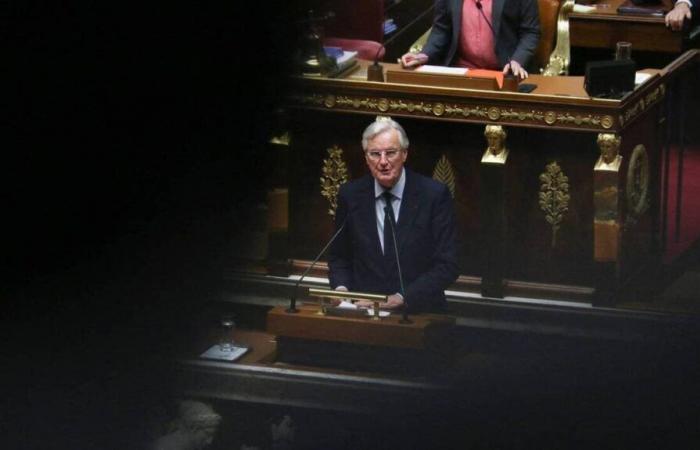The most short-lived Prime Minister of the Ve Republic? Michel Barnier used constitutional weapon 49.3 to have the text of the Social Security financing bill (PLFSS) adopted this Monday, December 2, 2024. In response to this forceful passage, the left and the National Rally have each filed a motion of censure. They should be examined this Wednesday, since the Constitution imposes a period of 48 hours between the submission of the motion and its vote.
The adoption of a motion of censure would then lead to the resignation of the government of Michel Barnier, who would become the most ephemeral Prime Minister of the Ve Republic.
Follow our live broadcast this Monday, December 2, 2024, dedicated to political news in France.
90 days Wednesday
This Wednesday, December 4 will be Michel Barnier's 90th day at Matignon since his appointment on September 5. If the government were to fall on Wednesday through the adoption of a motion of censure, it would mark the shortest mandate of Prime Minister under the Ve Republic.
The old record is held by Bernard Cazeneuve, with 155 days. The former Minister of the Interior under François Hollande was appointed on December 6, 2016, after Manuel Valls resigned to run in the socialist primary for the 2017 presidential election. Bernard Cazeneuve resigned following the election of Emmanuel Macron.
Behind, Gabriel Attal, Michel Barnier's predecessor, is in third place, with 240 days spent occupying Matignon.
Only one successful motion of censure under the Fifth
To be adopted, a motion of censure must receive an absolute majority, or 289 votes. The National Rally declared a few minutes after 49.3 that it will vote for the censure tabled by the left. If we add up all the elected representatives of the blocs – 192 elected representatives from the left and 124 deputies from the RN, the absolute majority would be reached.
Under the Ve Republic, the government has only been overthrown once because of a motion of censure. It was in 1962, under the presidency of General de Gaulle. The center, the socialists and the non-Gaullist right had tabled a motion of censure to oppose the election of the President of the Republic by direct universal suffrage.
It was adopted by 280 deputies out of 480, pushing the Prime Minister, Georges Pompidou, to resign. General de Gaulle responded by dissolving the National Assembly.
Note that this motion of censure did not follow the triggering of article 49.3 of the Constitution: it was a spontaneous motion of censure (article 49.2), tabled without the government having called into question its responsibility for a text. In this case, the motion of censure must come from one tenth of the deputies.
Michel Barnier has already faced a first motion of censure (presented by the left), in October, a month after his appointment. Without success for the opposition.
On Wednesday, if a majority of deputies vote to censure the government, “the Prime Minister must submit to the President of the Republic the resignation of the government”according to article 50 of the Constitution. Emmanuel Macron should then appoint a new Prime Minister: nothing rules out a new appointment of Michel Barnier.






